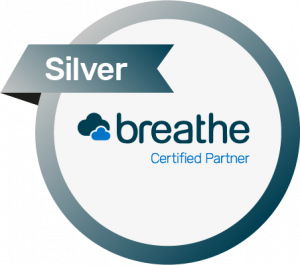We’ve heard that we need to train our employees on Equality, Diversity and Inclusion (EDI) on an annual basis – is this correct?
Equality, ( sometimes now referred to as Equity) Diversity, and Inclusion (EDI) training aims to educate employers and employees about what it takes to achieve a fair and just work environment, where everyone is valued and respected.
But, is EDI training mandatory?
Equality, Diversity and Inclusion training (EDI) is not a legal requirement for employers. However, while EDI training is not legally mandated, it has become increasingly commonplace in the workplace as employers look to create a harmonious working environment.
Despite not being a legal requirement, this does offer you as an employer some legal protection should someone in your business be accused of being discriminatory if you have delivered EDI training on a regular basis, this would give you as a business protection against a claim, which is why many employers do conduct this training on an annual basis.
However, there are many benefits of making sure your employees understand the importance of EDI in the workplace, so we wanted to share with you what we feel these are;
- A successful EDI training session helps to teach employees how to treat each other with respect and compassion within a diverse workplace. It should also explain how employees can take action if they (or a colleague) are discriminated against under the 2010 Equality Act.
- It should raise awareness of unconscious biases and discriminatory behaviours either at recruitment stage or when people join you. But it should also help you to create a workplace culture where employees feel comfortable expressing their true selves, which in turn leads to an increase in job satisfaction and increased levels of trust, innovation, and productivity, all of which contribute to a healthier bottom line
- In companies with more diversity among management, average profits are 38%higher than in companies with lower diversity. In addition, companies with more diversity at a management or leadership level are 21% more likely to be profitable and 27% better at creating value.
So, the research is there for all to see, but what steps can you take to make your workplace more equitable?
Follow An Unbiased Hiring Processes
A diverse and equitable workplace is achieved by addressing biases in the hiring process. This is the area that is most prone to biases and, as such, you should be focusing on it. Blind hiring is one extreme example of reducing unconscious biases, but there are many steps you can take to reduce them. Including the entire team in your hiring process, from job descriptions to the final hiring decision, is a less extreme but more inclusive approach, along with training on hiring biases, can go a long way to remove any individual hiring biases.
Profitability and value creation are both positively correlated with gender and other forms of diversity. In spite of this, women and minorities in the workplace still tend to have fewer opportunities when it comes to salary and promotions, and are more likely to be laid off. This is a clear indicator of biases existing, and the need to address them.
No Wage Gaps: Ensure Salary Equity
In order to achieve equity within an organisation, it is important to eliminate wage gaps. The playing field cannot truly be level if people earn drastically different wages for doing the same job. By making salary discussions transparent, everyone will be fairly rewarded for their efforts and the taboo surrounding salary discussions will disappear. Some companies take this topic to the extreme by publicising everyone’s salaries for everyone to see, even if you don’t work for the company. What a great example of transparency!
Equity, Diversity and Inclusion Training
Meraki HR have successfully delivered EDI training for a number of our clients and make sure that this informative and fun for all employees regardless of their role in the organisation. In our training, participants learn what we mean by EDI, why its important and the benefits of EDI. They will also understand what the nine protected characteristics are in law and how they apply to the workplace, as well as the legal ramifications and processes that may be followed if they feel they have been discriminated against, or if they are accused of discriminating against any of their colleagues.
If you have any questions or would like to discuss EDI training for your team, please get in touch with us HERE or book a call with us by CLICKING HERE




















